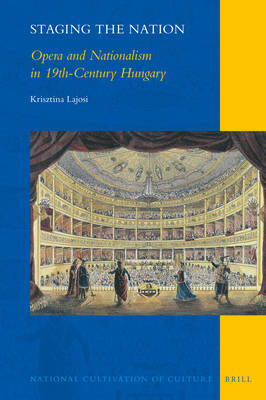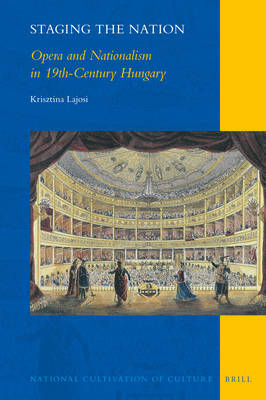
- Afhalen na 1 uur in een winkel met voorraad
- Gratis thuislevering in België vanaf € 30
- Ruim aanbod met 7 miljoen producten
- Afhalen na 1 uur in een winkel met voorraad
- Gratis thuislevering in België vanaf € 30
- Ruim aanbod met 7 miljoen producten
Zoeken
Staging the Nation: Opera and Nationalism in 19th-Century Hungary
Krisztina Lajosi
€ 115,40
+ 230 punten
Omschrijving
Opera was a prominent political forum and a potent force for nineteenth-century nationalism. As one of the most popular forms of entertainment, opera could mobilize large crowds and became the locus of ideological debates about nation-building. Despite its crucial role in national movements, opera has received little attention in the context of nationalism. In Staging the Nation: Opera and Nationalism in 19th-Century Hungary, Krisztina Lajosi examines the development of Hungarian national thought by exploring the theatrical and operatic practices that have shaped historical consciousness. Lajosi combines cultural history, political thought, and the history of music theater, and highlights the role of the opera composer Ferenc Erkel (1810-1893) in institutionalizing national opera and turning opera-loving audiences into a national public.
Specificaties
Betrokkenen
- Auteur(s):
- Uitgeverij:
Inhoud
- Aantal bladzijden:
- 188
- Taal:
- Engels
- Reeks:
- Reeksnummer:
- nr. 15
Eigenschappen
- Productcode (EAN):
- 9789004347212
- Verschijningsdatum:
- 22/03/2018
- Uitvoering:
- Hardcover
- Formaat:
- Genaaid
- Afmetingen:
- 155 mm x 236 mm
- Gewicht:
- 408 g

Alleen bij Standaard Boekhandel
+ 230 punten op je klantenkaart van Standaard Boekhandel
Beoordelingen
We publiceren alleen reviews die voldoen aan de voorwaarden voor reviews. Bekijk onze voorwaarden voor reviews.











